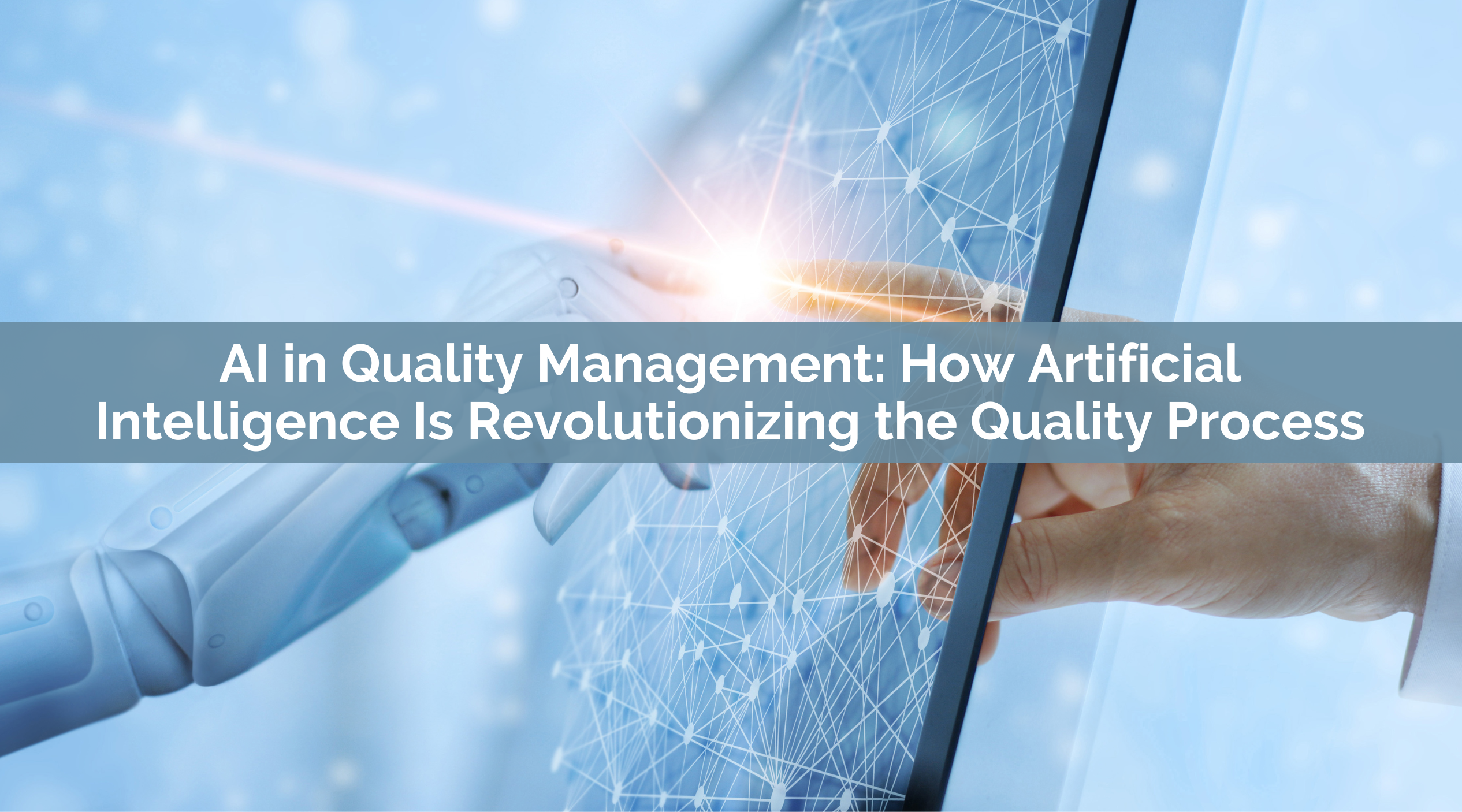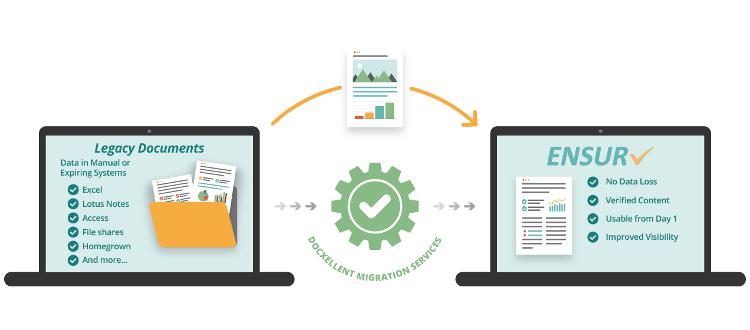
Quality management is a critical aspect of various industries, ensuring that products and services meet established standards and exceed customer expectations. As technology continues to advance, the integration of artificial intelligence (AI) is revolutionizing traditional business processes. In this blog, we will explore the profound role of AI in quality management, highlighting its potential to enhance efficiency, accuracy, and decision-making capabilities in the quality process.
The Role of AI in Quality Management
- Automation of Quality Control Processes: One of the key contributions of AI in quality management is the automation of quality control processes. By utilizing AI-powered systems for data collection and analysis, organizations can streamline inspections and testing procedures. AI algorithms can quickly analyze vast amounts of data, enabling real-time decision-making and reducing the need for manual effort.
- Predictive Analytics for Quality Assurance: Artificial Intelligence brings predictive analytics to the forefront of quality assurance. By leveraging historical data and machine learning algorithms, organizations can identify potential defects and deviations in the quality process. This proactive approach enables preventive measures to be implemented, preventing quality issues before they occur. Real-time monitoring and continuous improvement become achievable through AI-driven insights.
- AI-Based Sensors and Monitoring Systems: AI-based sensors and monitoring systems play a vital role in quality control. These systems can collect real-time data, monitor quality parameters, and identify anomalies. By employing adaptive algorithms, AI can identify patterns, trends, and deviations that might be difficult for human operators to detect, ensuring that quality issues are addressed promptly, and allowing for improved product consistency and customer satisfaction.
Benefits of AI in Quality Management
- Improved Accuracy and Reliability: AI eliminates the possibility of human error in the quality process by automating tasks and leveraging advanced algorithms. By doing so, AI enhances the accuracy and reliability of quality control activities. AI systems can detect and analyze defects with high precision, leading to consistent and reliable quality outcomes.
- Increased Efficiency and Productivity: AI-driven automation and data processing capabilities significantly increase efficiency and productivity in quality management. By automating manual tasks, organizations can achieve faster data processing and analysis, reducing the time required for quality inspections. This reduction in manual work leads to time and cost savings, allowing resources to be allocated more effectively.
- Enhanced Decision-Making Capabilities: AI empowers organizations with enhanced decision-making capabilities in quality management. By providing data-driven insights, AI enables proactive quality control measures. It can identify potential risks and areas for process optimization, supporting better decision-making at various levels within the organization. AI systems can also provide recommendations for risk mitigation, enabling organizations to make informed decisions to improve overall quality outcomes.
Industry Applications of AI in Quality Management
- Manufacturing: In the manufacturing industry, AI plays a pivotal role in quality management. AI-enabled visual inspection systems are used for product quality assessment, identifying defects, and ensuring product consistency. Additionally, predictive maintenance using AI algorithms helps reduce machine downtime and optimize production efficiency, leading to improved product quality and reduced costs.
- Healthcare/Life Sciences: The application of AI in healthcare and life sciences has significant implications for quality management. AI-based algorithms are used for medical diagnosis and quality assessment, aiding in accurate and timely diagnoses. Real-time monitoring of patient safety using AI-driven systems helps prevent adverse events and ensures optimal healthcare quality.
- Software Development: In software development, AI-driven testing and code quality analysis have become essential for ensuring high-quality software products. Automated bug detection and resolution, facilitated by AI, reduce software defects, and improve overall product quality. AI-based testing ensures comprehensive coverage and faster identification of issues, resulting in more reliable software.
- Food and Beverage Industry: Quality control is crucial in the food and beverage industry to maintain product safety and consistency. AI is utilized to monitor and analyze various parameters throughout the production and packaging processes. AI-driven systems can detect contaminants, ensure accurate labeling, and optimize quality assurance protocols. This helps prevent foodborne illnesses, improve traceability, and uphold the quality standards expected by consumers.
- Energy and Utilities: AI has applications in quality management within the energy and utilities sector. For renewable energy systems such as solar panels and wind turbines, AI-driven monitoring systems can detect deviations in performance, helping identify maintenance needs and optimizing energy production. Quality control processes in utility services can also benefit from AI-powered data analysis to ensure efficient and reliable delivery of services.
Challenges and Considerations
- Data Quality and Availability: To leverage the full potential of AI in quality management, organizations must ensure the accuracy and reliability of the data used by AI algorithms. It is essential to have robust data collection processes, address data biases and limitations, and ensure the availability of high-quality data for AI-driven insights.
- Ethical Considerations and Human Oversight: As AI becomes more prevalent in quality management, addressing ethical concerns and providing human oversight is crucial. Organizations must consider the impact of AI on jobs and ensure that humans are involved in decision-making processes. Ethical practices and responsible AI frameworks should be established to maintain transparency and trust.
- Integration and Implementation Hurdles: Integrating AI into existing quality management systems can pose technical and organizational challenges. Organizations must overcome integration hurdles and invest in appropriate infrastructure and resources. Training employees to adapt to AI-driven quality processes is also vital to ensure successful implementation.
AI is revolutionizing the quality management landscape by enhancing efficiency, accuracy, and decision-making capabilities. Its ability to automate processes, provide predictive insights, and improve overall quality outcomes is transforming industries across the board. By embracing AI as a strategic tool, organizations can enhance customer satisfaction, drive continuous improvement, and gain a competitive edge in the market.
With the help of advanced technologies like ENSUR, a document management system designed specifically for quality management, organizations can now streamline their operations, ensure compliance, and drive efficiency to new heights. By embracing quality management principles and adopting these essential practices, particularly in the life sciences sector, organizations have the opportunity to revolutionize their operations and achieve unprecedented levels of customer satisfaction and growth.
Don't miss out on the chance to take your Quality Management processes to the next level. Request a demo today to explore the power of the ENSUR document management system and discover how it can empower your organization to master quality management and enhance efficiency. With ENSUR's cutting-edge capabilities, you can revolutionize your quality processes, stay ahead of the competition, and unlock a world of possibilities for your organization. Embrace the future of quality management with ENSUR today.

Chad Bouley is the Technical Support Manager at DocXellent, involved in all aspects of the software lifecycle. With over 20 years of experience in the technology industry, he excels in problem-solving and oversees professional services like data migrations. He values the collaborative and family-friendly environment at DocXellent and takes pride in contributing to the company's success. When not at work, Chad enjoys spending time with his family and playing Hearthstone, a virtual trading card game. He is passionate about continuous improvement and ensuring DocXellent supplies our customers with the best services possible. Learn more about Chad here.





























